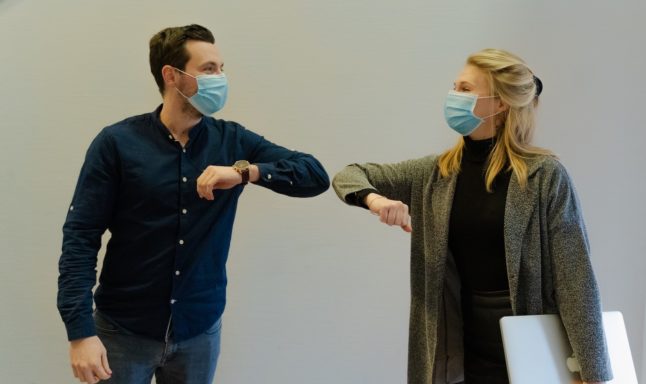After a good epidemiological situation in the past few weeks, the number of infections shot up in the past several days.
Switzerland has recorded 449 additional cases of coronavirus in the 72-hour period between July 2nd and 5th, according to figures from the Federal Office of Public Health (FOPH).
By comparison, a week ago, on Monday June 28th, this figure was 239.
And on Tuesday July 6th, 274 new cases were reported — over 100 more than on Tuesday the previous week.
At the same time, the reproduction rate has exceeded 1, meaning that the virus is spreading faster than in previous weeks.
Also, the number of cases attributed to the Delta virus has also gone up.
While at the end of June about 10 percent of Switzerland’s population was affected by this highly contagious variant, currently nearly 29 percent of contaminations are caused by it, according to FOPH.
This is in line with forecasts by Swiss epidemiologists, who predict that this mutation will be the most prevalent in the country by the end of summer.
But why have numbers gone up already now?
“Switzerland is currently in a transition phase in the pandemic”, according to Jan Fehr, the infectious disease specialist at the University of Zurich.
“There is certain recklessness in the population right now”, he added.
This slight increase in new cases is a source of concern, he noted, adding that he has “a bad feeling” about the evolution over the next week.
READ MORE: ANALYSIS: Is Switzerland lifting its Covid-19 restrictions too quickly?
There are several possible reasons for the surge in infections.
One of them is more transmissions with the Delta variant “which is much more infectious and it takes less contact with an infected person to become contaminated”, Nicola Low, professor of Epidemiology and Public Health at University of Bern told The Local.
Other contributing factors are relaxation of measures in June, bad weather — people staying indoors more — and the football championships.
For the latter, there are two potential sources of these contaminations, according to Low: “fans who travelled to watch matches abroad and infect people once they are back in Switzerland, and those watching matches together in groups indoors and not wearing masks”.
“It is too soon to see infections that might have been caught in St. Petersburg”, on July 2nd, when Switzerland played against Spain, she added.
And, “there are still many unvaccinated people who can easily get an infection, especially with the Delta variant”, Fehr noted.
The only way to stop the numbers from rising even higher is for more people to get vaccinated, he said.
READ MORE: How Switzerland plans to contain the Delta variant



 Please whitelist us to continue reading.
Please whitelist us to continue reading.
Member comments